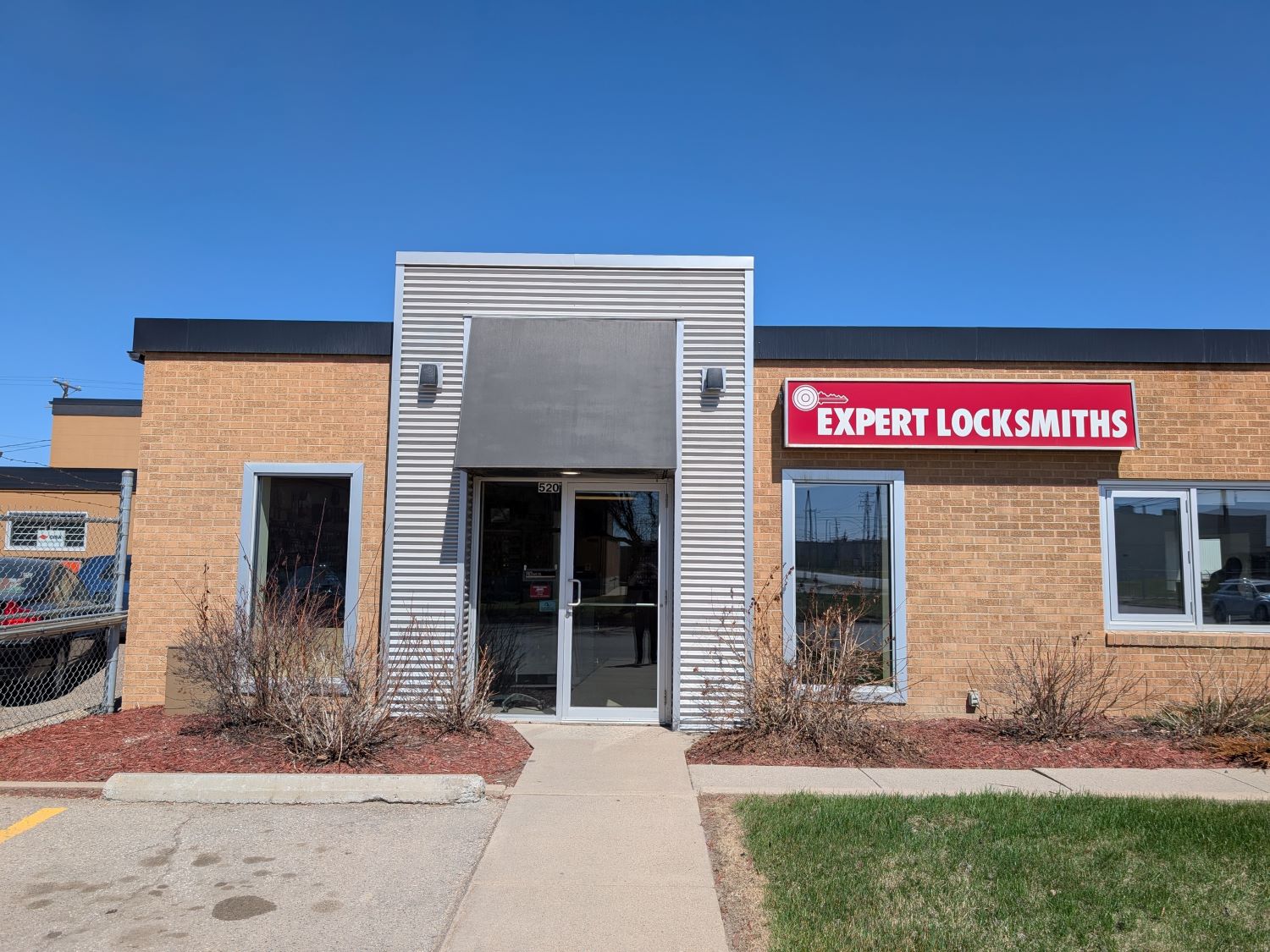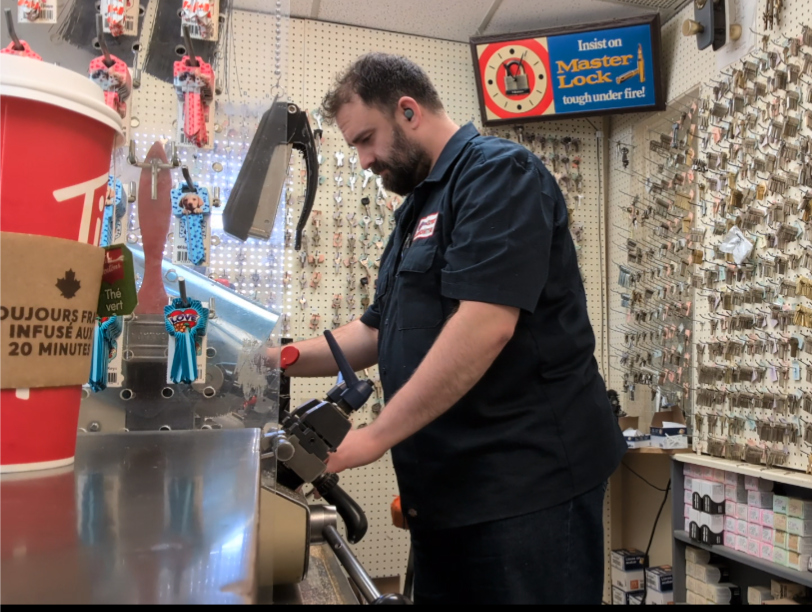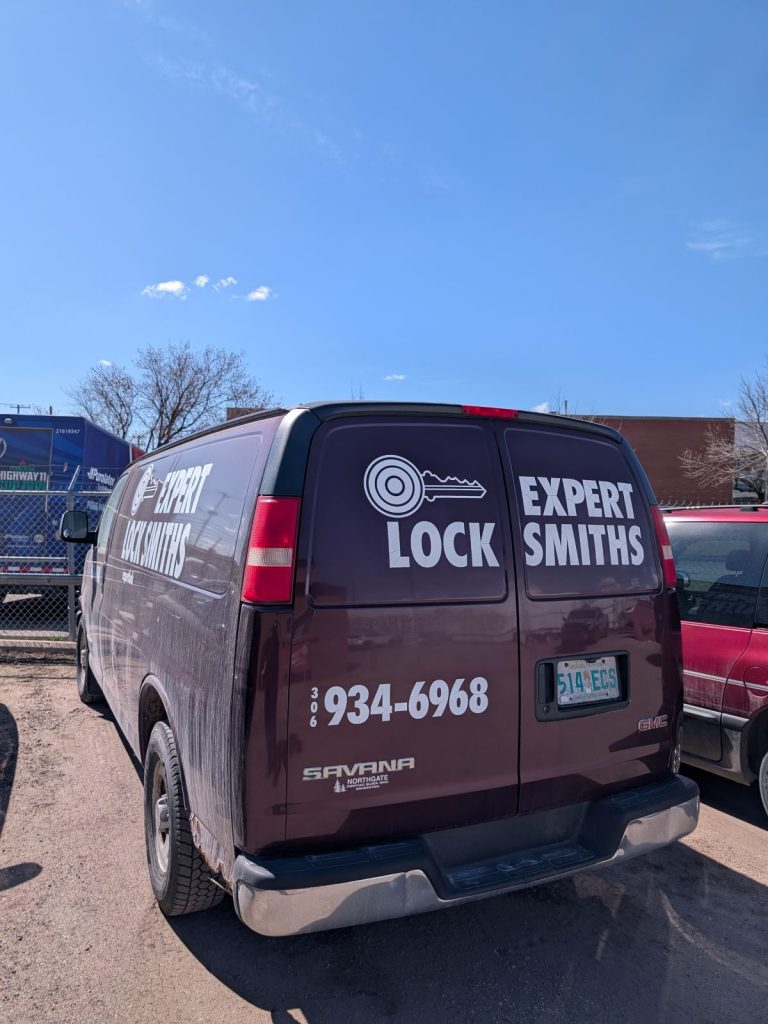At TLJ, we enjoy interviewing locksmiths from overseas to gain a fresh perspective on the trade and life in different parts of the world. We interviewed Collin Goertzen of Expert Locksmiths, based in Saskatchewan, Western Canada, where crime is rife, and the weather, well, just adds to the challenge!
Saskatchewan has warm summers (20–35°C) from June to September. Winters are cold, with snow, high winds creating blizzard conditions, January highs around -25°C.
Colin told us:
About Expert Locksmiths: A Typical Day
I have worked for Expert Locksmiths since April 2008. The shop was opened in 1982 and today has five employees. I work as an in-shop locksmith, and normally we have two service guys out in the field. Lately, it’s been a pretty busy and trying time with all the changes happening around us.
My day starts by opening the shop: grabbing the cash tray from the safe, unlocking the doors, switching on the lights, and tidying up my workstation. Our busy periods usually hit around 10 am noon, and 3 pm – right when companies take their coffee breaks and people swing by to visit.
Popular Lock Brands
Most of our residential work is based on Schlage or Kwikset locks both American brands — or copies and variations of them. Commercially, we’ve seen a big influx of Yale hardware. In the shop, we mostly sell Schlage because it’s the most adaptable for our clients when it comes to masterkeying, parts access, and ease of maintenance. Schlage is reliable, and their warranty support has always been solid. Compared to Sargent, Yale, or Corbin, it just makes life easier.
Security Challenges
Security issues are a daily part of what we see, especially with apartment buildings and shops that have glass and aluminium doors. A lot of the time, the locks weren’t installed properly, or the deadbolt fires too far out. The gap between the door and frame gets too wide, making it easy to push the latch back and break in. You can fit interlocking astragals onto those doors, but they’re heavy and can cause sagging — basically swapping one problem for another.
If it were up to me, I’d like to see more panic hardware installed on office buildings and rental buildings, so the latch is behind the doorstop. That would make these doors a lot more secure than just a regular lock. Weather doesn’t help either — frost and temperature changes cause the ground to shift, and that moves doorways around. We’re constantly adjusting doors from winter through summer.
Adjustable strikes can be tricky too. They change value depending on how hard the door closes, and if it pushes inward, it messes with the latch and deadlock pin. A lot of the time, it’s about relieving just enough pressure to get everything working smoothly again. Multipoint locks don’t work well here because of all the movement — they’re fine for interior office doors, but for residential work, we stick to a good one-inch throw bolt and a half-inch latch. Unfortunately, a lot of homes still don’t even have a proper deadbolt, and the level of security can be crazy low.
On the commercial side, securing compounds and outdoor storage units is always a challenge. People get angry when padlocks are cut off – even with cameras catching it. We’re constantly trying to figure out how it happened. It’s frustrating because, honestly, a lot of security products lead to disappointment.
The crime rate around here is outrageous, it’s like a modern-day Wild West! If you don’t have something tied down, it’s gone! Fuel is a high-value commodity too – people are stealing it out of trucks, slip tanks, and storage tanks. Securing those tanks depends a lot on how they’re welded together, which makes it tricky.
The construction sector gets hit hard too — trailers, vans, you name it. Grinders have made it harder than ever to slow down crime. What used to seem like overkill ten years ago is now just standard practice. The cost of security products has gone through the roof, and at the same time, people have gotten more desperate. We’re really in the business of selling peace of mind.
Tough Situations
Some of the toughest situations we deal with are around people with dementia or special needs — the risk of them wandering out of a house or care facility. We’ve been trying to figure out for years what kind of lock system keeps them safe inside but can still be quickly removed in case of a fire. It’s a real dilemma.
On the automotive side, dealing with newer sidewinder keys has been a whole other headache. They’re finicky, they wear out easily, and when they fail, they can lock down an entire car. Which put customers in a tough decision to either replace locks or try their luck with a factory cut key and hope it’s money well spent, pending the wear on the locks.

What I would do Differently
If I were starting my own shop today, I’d probably shift away from residential work and focus more on commercial needs. I’d specialise in things like better padlocks, affordable commercial-grade hardware, and metal cabinet work.
Camlocks, though — man, those are tough mentally. Just when you think something will fit, it won’t. Every size is different, every application is different, and getting accurate measurements from customers is half the battle.
In the U.S., the Disabilities Act is forcing more companies to switch to levers (Grade 1 or 2) instead of doorknobs, and that’s changing the market too. Panic hardware is becoming the standard for a lot of commercial applications.
Right now, we’re looking for more service guys to join us for installations and repairs. But finding qualified locksmiths is tough — there are only a handful of certified locksmiths in Saskatchewan, and even across Canada. Alberta has the strictest laws for locksmithing, having to be licensed by the province to work as a locksmith. In the main, most of the country is still pretty lax on regulations and procedures for locksmiths. Locksmithing is not a nationally recognised trade in which to gain funding, so each business supports itself financially and gains its own work experience.
Ambitions & Personal Goals
Personally, I’m working on becoming a certified locksmith myself. One of my dreams is to take more courses in the UK and eventually move to Scotland to train and live there. It’s something I’m working toward every day.
I came across TLJ on Instagram whilst looking for opportunities to network with other locksmiths from around the world, hoping to meet other likeminded people. I’m so glad I did and it’s great to take part in this interview. Please feel free to connect with me on Instagram, it would be great to hear from you!
306-934-6968
Saskatoon Location, 520 43 St East, Saskatoon, SK S7K 0V6




